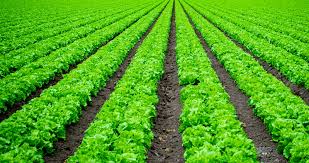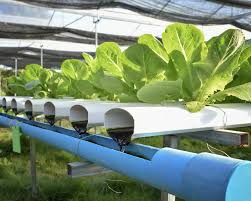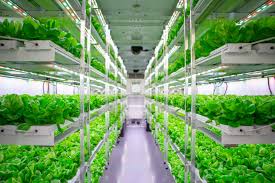![]()
If you’ve landed on this article page, you’re probably searching for a
good business idea—an idea that’s light on the pocket but heavy on
returns, promising both a fulfilling journey and potential profit.
|
How to start Hydroponics Farming in Nigeria
Hydroponics is a method of growing plants without using soil.
Instead, plants are grown in a nutrient-rich water solution that
provides all the essential minerals directly to the roots. This
innovative farming technique allows plants to grow faster,
produce higher yields, and use less water compared to
traditional soil-based methods.
In a hydroponic system, the plants' roots are either submerged
in or regularly misted with a water-based solution that contains
all the nutrients the plants need. Since the roots don't have to
search for nutrients in the soil, they can absorb them more
efficiently, leading to quicker growth and healthier plants.
Types of Hydroponic Systems:
1. Nutrient Film Technique (NFT): A thin film of nutrient-rich
water continuously flows over the roots, allowing them to absorb
nutrients while getting enough oxygen.
2. Deep Water Culture (DWC):Plants are suspended in a solution
of nutrient-rich water, with their roots fully submerged,
providing constant access to nutrients.
3. Drip System:Nutrients are delivered to the plant roots
through a network of tubes, providing precise control over the
feeding schedule.
4. Wick System: Nutrients are drawn up to the roots through a
wick, making it a simple and passive system.
5. Aeroponics:Roots are suspended in the air and misted with a
nutrient solution, providing maximum oxygen exposure and
nutrient absorption.
Benefits of Hydroponic Farming:
1. Faster Growth: Plants in a hydroponic system can grow up to
50% faster than those in soil because they have direct access to
nutrients and optimal conditions.
2. Higher Yields: The controlled environment of hydroponics
allows for more frequent harvests and higher crop yields.
3. Water Efficiency: Hydroponic systems use up to 90% less water
than traditional farming since the water is recirculated and
reused.
4. Space Efficiency: Hydroponics can be set up in smaller
spaces, making it ideal for urban farming or indoor gardening.
5. Pest and Disease Control: Without soil, there is a reduced
risk of soil-borne diseases and pests, leading to healthier
plants and fewer pesticides.
6. Year-Round Growing: Hydroponic systems can be operated
indoors, allowing for consistent crop production regardless of
the season.
The initial investment for a hydroponic farm in Nigeria can vary
based on scale and location. Here’s a rough breakdown of the
capital required: Structures and Greenhouses: Constructing
suitable structures or greenhouses can cost between ₦500,000 to
₦2,000,000, depending on size and materials.
Hydroponic Systems: The cost of setting up a hydroponic system
varies, but a small-scale system may require an investment of
₦50,000 to ₦200,000.
Lighting: If growing indoors, LED grow lights can range from
₦30,000 to ₦100,000 per unit.
Seeds or Seedlings: Budget around ₦10,000 to ₦50,000 for initial
plant stock.
Nutrient Solutions and pH Control: Allocate ₦10,000 to ₦20,000
for essential nutrient solutions and pH control kits.
Operating Expenses: Include costs for water, electricity, and
labor, which can vary widely.
Profitability Potential: While profitability can vary depending
on crop selection, market demand, and efficiency, hydroponic
farming offers significant income potential. Here are some
factors that can contribute to profitability:
Year-Round Production: With controlled environments, you can
produce crops year-round, allowing you to meet demand even
during the offseason.
Premium Prices: Hydroponically grown crops can command premium
prices in local markets due to their quality and consistency.
Reduced Water Usage: Hydroponics is more water-efficient than
traditional farming, which can translate into cost savings.
Reduced Pest and Disease Pressure: Soilless farming reduces the
risk of soilborne pests and diseases, potentially lowering input
costs.
Market Demand: Nigerian consumers are increasingly looking for
fresh, locally grown produce, creating a growing market for
hydroponically grown crops.
Get our Practical Training Guide on Hydroponic Farming in
Nigeria. During our Training you will
learn all essentials you will need for your first hydroponics
systems, instructions how to construct different hydroponics
systems, what plants to grow,
including the capital required and the profitability
potential.
Given the rising demand for fresh, locally-sourced produce, we
help you select the right crops for maximum profitability. By
analyzing various hydroponic techniques, we position you for
sustainable success while maneuvering regulatory challenges.
Join us as we explore the potential of hydroponics together,
illuminating the next steps for your thriving farming venture.
|







